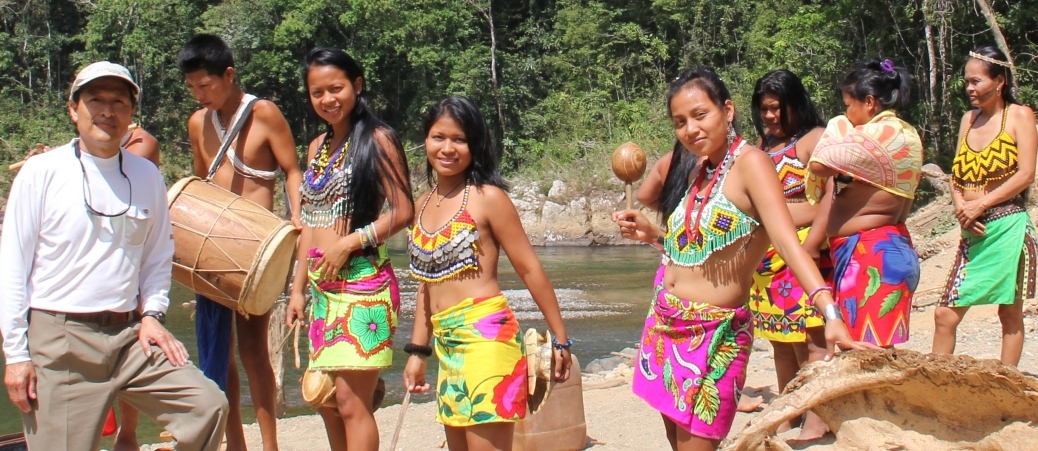Panama FAQ’s
Do I need a visa?
US and Canadian citizens do not need a visa to enter Panama as a tourist for up to 180 days. However, they must have a current valid passport and a return ticket to your country or proof of onward travel. For those traveling with a passport from another country other than the US or Canada; visit projectvisa.com for more information.
Is my passport valid?
US and Canadian passports must be valid for a minimum of three months following the end of your trip for entry into Panama. If it expires earlier, be sure to get a renewal.
Do I need any shots?
No vaccinations are required for travel from the US or Canada to Panama. Measles, Hepatitis A and Typhoid vaccines are recommended but not required. Yellow fever vaccinations are required if arriving from some countries in South America or Sub-Saharan Africa.. See the CDC website for details.
When can I expect more details on my trip?
You will receive two sets of information by email: 1. Pre-departure materials once your trip is guaranteed, typically 2-4 months prior to your departure; and 2. Final Documents sent 8-14 days before you leave.
When is my balance due?
Your land balance is due 90 days prior to departure for Signature Trips and generally due at 120 days for Custom Trips. An invoice indicating your balance due will be sent with your pre-departure information.
Will I be met at the airport?
Yes, if you arrive according to schedule or have arranged extra transfers through our office. Meeting instructions and local contact information will be given with your Final Documents.
Are there local flights within Panama? Who books them?
Panama is a small country; however, short flights of 35 minutes facilitate travel between regions. Southwind will provide you with an air schedule to best match your trip. We can also recommend a Latin American ticketing specialist to assist you with all your airline ticketing needs.
How much money should I bring?
Depending on the length of your trip, plan to bring $300-600 per person for spending money, tips, airport taxes, additional visits and those meals not included in the itinerary. Note: a departure tax of $40 is usually included in your airline ticket when Panama is your final destination.
Should I bring cash or bank cards?
Cash is the easiest to exchange. Both US Dollars and the Panamanian Balboa are Panama’s two official currencies. Credit or debit cards are also easy to use at most establishments. Be sure to check with your bank prior to your departure to inform them that you will be using your card in a foreign country. Traveler’s checks are less efficient and may take extra time and documentation to use. Find current exchange rates.
Are ATM machines available?
Yes. There are ATM machines in the main cities such as Panama City, Boquete and Boca Chica. We recommend using the ones located inside some hotels, stores, restaurants or banks. Be cautious as some thieves may watch these machines and target tourists and others who take out large amounts of cash. Consult with your guide for safety recommendations on ATM’s or exchanging money.
What will the weather be like?
Panama enjoys a warm tropical climate year-round, with a rainy season between May and November. Average high temperatures are in the lower 80s, with average low temperatures in the mid 60s year-round. The weather varies considerably based on the region, with microclimates that depend on elevation and geography. The climate on the Pacific coast is humid and warmer, and in the highlands expect less humidity and cooler temperatures.
Panama is a year-round destination, but ideal time to visit is during the “summer” dry season of December-April. See more Panama weather and climate info.
How do I train for my trip?
If you lead an active lifestyle (walking, cycling, swimming, tennis, etc. on a regular basis) you will do fine on a Grade I or II trip. For Grade III trips you should plan to jog or stair climb for at least 45 minutes 4-5 times per week (more frequency for a Grade IV trip). View more details on Trip Ratings.
Who will be my guide?
We work with the most respected and experienced native guides, many of whom have advanced degrees in tourism, biology, history, culture or other specialties. All speak fluent English and are knowledgeable, patient and fun to be around. Your Final Documents will provide guide details.


